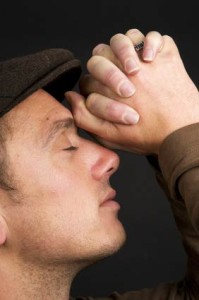
Contributor: Ryan Moffat, BS in Bible and Theology from Multnomah University. Pastor of Vast Church.
 Families are the ultimate place where all our idiosyncrasies, insecurities and dysfunctions come out, isn’t it?
Families are the ultimate place where all our idiosyncrasies, insecurities and dysfunctions come out, isn’t it?
This is why the holiday season that is upon us is both a glorious time (because there’s a lot of GREAT things about family) and a stressful, troubling time (because there’s a lot of baggage in our families).
I want to suggest a few important steps to take should a family member get a “DUI” or get into legal trouble due to addiction (especially during the holiday season).
Interaction Guidelines
Here are some principles/guidelines for those families wading into the painful world of addiction with a loved one:
1. Talk with your addicted family member and reconfirm your love for him/her.
There’s nothing worse than failing again in the recovery process! The only thing worse is failing in your recovery only to be rejected by your friends and family as a consequence of the failing! When someone you love fails again make sure you keep telling them; “no matter what you do I love you!”
2. Don’t pretend that the “Bad Stuff” isn’t happening!
Too many families live pretending that pain isn’t really happening in them, around them or in the world! They bury their head in the sand and live the all-too-familiar worldview of “fake it ‘til you make it”.
When you’re loved one gets in trouble with the law due to a self-destructive addiction the last thing they need is their family to act like everything is normal…because it’s not. Talk openly about the failure, talk openly about the consequence but primarily for the sake of the person’s redemption!
3. Talk openly about boundaries and consequences.
 It’s not “unloving” or “judgmental” to talk about relational expectations in your family. It’s actually smart, loving and wise. You should talk to your family member in recovery about the exact nature of what you and your family expect from him/her.
It’s not “unloving” or “judgmental” to talk about relational expectations in your family. It’s actually smart, loving and wise. You should talk to your family member in recovery about the exact nature of what you and your family expect from him/her.
To not clearly communicate your expectations would be harsh, immature and ultimately “self-protective”. Schedule some time with your family member and share the healthy lane lines that you expect to relate within.
4. Pray for him/her and ask God to help!
We do WAY TOO MUCH on our own strength when God invites us to “cast our cares on Him” and to “abide in Him”. You don’t have to do this difficult stuff in life alone.
God actually desires to share the hardship with you! When we pray to God we acknowledge the truth that “apart from Him we can do NOTHING!”
May you move forward with grace and truth to love the people in your life who are struggling through incredibly difficult addictive behavior!
May God work in your life in amazing ways!
Community Discussion – Share your thoughts here!
Have you or your loved one suffered from the legal consequences of your addiction? What support did you offer or receive that was helpful and encouraging to you?
 About the Author: Ryan received his BS in Bible and Theology and a minor in counseling from Multnomah University. He has pastored students, families and is passionate about Christ-centered recovery and healing.
About the Author: Ryan received his BS in Bible and Theology and a minor in counseling from Multnomah University. He has pastored students, families and is passionate about Christ-centered recovery and healing.
He’s been married to his beautiful wife Michelle for 13 years and they enjoy raising four crazy, unique and special kids together. Ryan is the teaching pastor at Vast Church in Sisters, OR and is currently working on his Masters in Theology at Western Seminary in Portland, OR
Addiction Hope is proud to announce the initiation of a special Christian Track of blogs and articles to commemorate the blessing of our sister site, Eating Disorder Hope’s 10th year anniversary. Watch for further content noted as “Christian Track”.
The opinions and views of our guest contributors are shared to provide a broad perspective of addictions. These are not necessarily the views of Addiction Hope, but an effort to offer discussion of various issues by different concerned individuals.
We at Addiction Hope understand that addictions result from a combination of environmental and genetic factors. If you or a loved one are suffering from an addiction, please know that there is hope for you, and seek immediate professional help.
Last Updated & Reviewed By: Jacquelyn Ekern, MS, LPC on January 1, 2016
Published on AddictionHope.com
